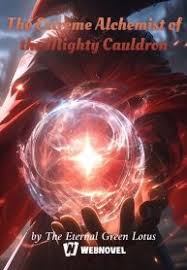Chapter 161: The leader whose style is plummeting
Speak at length when there is something to say, and be brief when there is nothing.
The following days in the Green Sparrow Tribe were ordinary, nothing noteworthy.
Time passed by quickly. The sun, rising in the northeast daily, shifted to the east and hurriedly headed southeast. It, too, was tired of facing the familiar and desired to be closer to the South, intending to embrace everything and not be confined to one place
As it gradually moved away, the temperature on this land started to drop. Leaves fell from branches. Plants yielded the fruits they had been nurturing for half a year, hoping to regain the warmth brought by that figure. However, it was all in vain; the warm figure continued to move away without looking back
In the autumn atmosphere, the twelve connected houses of the Green Sparrow Tribe were in the final stage of roofing.
After finishing the roofing, a little more tidying up, and they would be ready to move in before winter arrived.
When more than half of the roof was done, they had to stop because there was a shortage of tiles being produced.
Even though Han Cheng later assigned two more people to help Hei Wa with tile making, it still wasn't enough.
There was no choice but to temporarily stop and resume when a sufficient quantity of tiles was accumulated.
Coincidentally, it was also time to prepare for planting rapeseed.
The Eldest Senior Brother, who temporarily stopped building the houses, was still busy. They were working in the fields.
With his bone shovel, Shang stuck it in the dung heap outside the Green Sparrow Tribe's courtyard on the east side. Then, he took a hooked pole from the side, hooked the handle of the shovel, and stood up straight, carrying two loads of a mixture of deer dung, rabbit droppings, chicken manure, and some decomposed weeds, heading towards the rapeseed field on the west side of the courtyard.
The Eldest Senior Brother and others were doing this task with him.
This directly solved Han Cheng's worries. Otherwise, for the development of agriculture and the future prosperity of the tribe, he would have to convince the people of the tribe to leave the caves they had inhabited for generations and move to unfamiliar places to establish new settlements.
In that case, all the previous efforts would have been in vain.
This realization made Han Cheng appreciate his luck once again. It felt good not to start from the most primitive starting point.
It reminded him of those who were born at the finish line. When they stood there, looking back at the numerous people preparing to race, their feelings should be even more extraordinary.
Indeed, from birth, people are subjected to various injustices. It's like traveling through time; the unfortunate arrived in primitive society
Fortunately, we still have hands and feet and can change our situation through our efforts. Even if we put in all our efforts and still don't reach the starting point of others, at least we surpass our starting point
Well, just like Han Cheng leading the Green Sparrow Tribe, they may never reach the level of the era he lived in the future, but they can still make the tribe's people live better than before.
According to Han Cheng's original idea, for the trees on the land to be cultivated, just like last year, clear a buffer zone around the land and then burn it down.
But later, he changed his mind.
Because of the continuous construction of houses, kilns, stone burning, and the production of other wooden products throughout the year, the Green Sparrow Tribe had a high wood consumption.
When all these houses were completed and burning stoves together in winter, the demand for firewood was also significant. So, Han Cheng was a bit reluctant.
At his suggestion, everyone in the Green Sparrow Tribe first moved out the dry wood used for kilns and stone burning, leaving the remaining dry branches, leaves, and some too-thick and difficult-to-move tree trunks inside, waiting to be burned with intense fire.
Looking at the somewhat decayed wood in front of him and the fallen trees in the distance, Han Cheng felt it was necessary to start trying to make charcoal. Otherwise, by the time these woods, which were too late to burn, would be wasted.
After turning into charcoal, these woods, free of impurities, were easy to store and had better-burning efficiency. Until they found a good substitute for coal, Han Cheng would have to rely on charcoal if he wanted to forge some metal tools.







